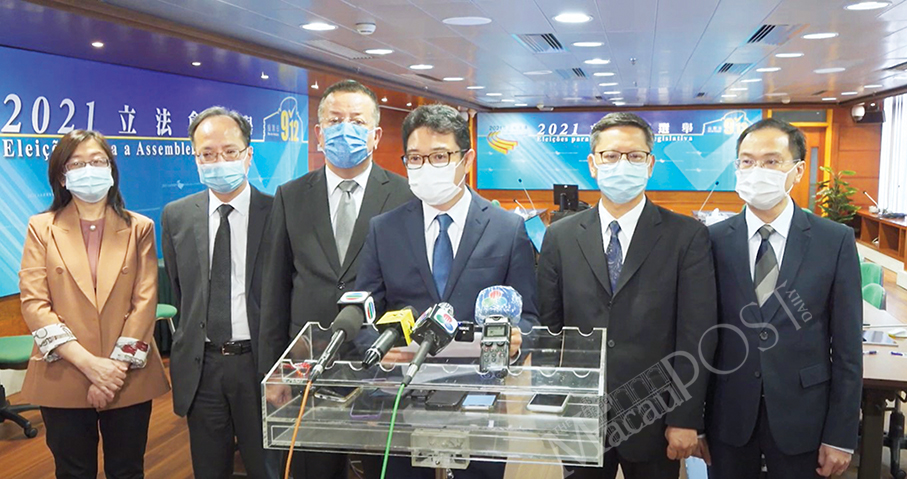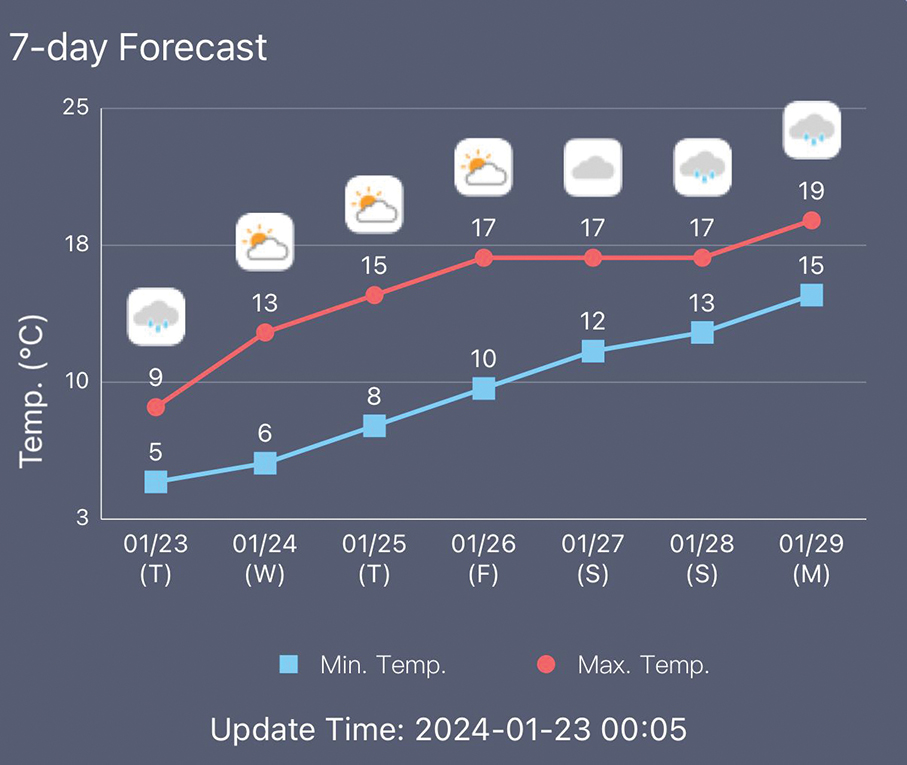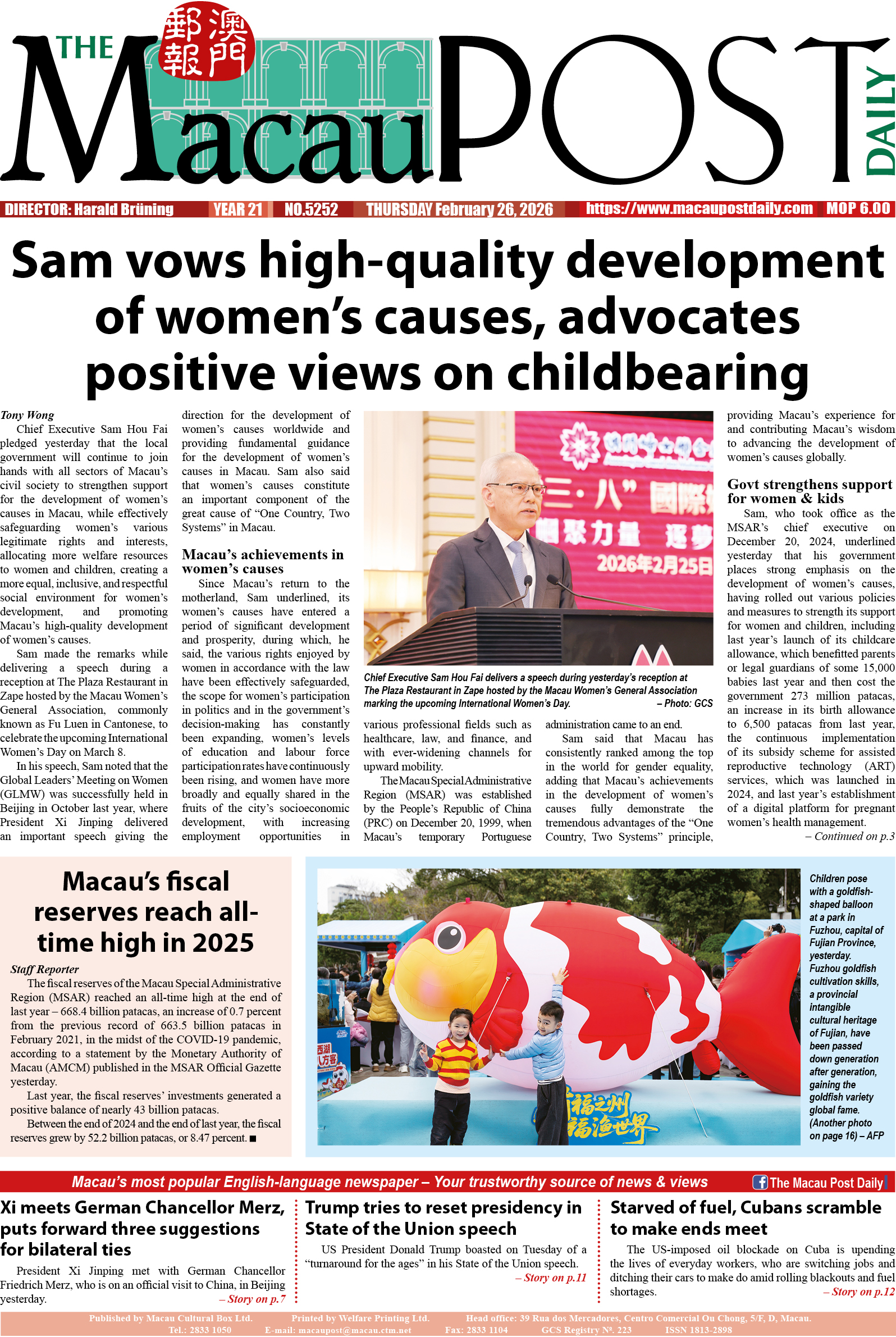The Electoral Affairs Commission for the 2021 Legislative Assembly Election has prepared a COVID-19 contingency for the upcoming election campaign and polling day, its chairman, Tong Hio Fong, told reporters yesterday.
According to Tong, the purpose of the contingency plan is to ensure that registered voters can cast their ballot, irrespective of the public health and safety issues caused by the COVID-19 pandemic.
Tong also said that those with a yellow Macau Health Code will be allowed to cast their ballots at polling stations in next month’s direct and indirect legislative elections, while those with a red Macau Health Code will be barred from entering polling stations – i.e. those with a red health code on polling day will be unable to vote.
Replying to a reporter’s question, Tong also said that the elections, which are scheduled to take place on September 12, would have to be postponed if Macau was hit by a new round of the COVID-19 epidemic.
Tong made the remarks while speaking to reporters after chairing a regular closed-door meeting of the commission at the Public Administration Building in Rua do Campo.
The Macau Health Code has three colours, namely green, yellow and red.
Those who have been identified by the Health Bureau (SSM) as having COVID-19 infection risks will have their Macau Health Code colour turn yellow or even red, depending on the respective risk level.
Only those with a green Macau Health Code are allowed to enter certain premises and taking public transport.
Those with a yellow Macau Health Code are barred from leaving Macau, entering certain premises in the city, and taking public transport.
Normally, those who have had their Macau Health Code colour turn red will be transferred by the Health Bureau to medical observation at a quarantine facility for a certain period whose length will be determined on a case-by-case basis by the bureau depending on the respective individuals’ situations.
Under certain circumstances those with a red Macau Health Code may have no need to undergo quarantine, in which case they are, however, subject to stricter measures compared to those with a yellow health code.
Those with a yellow Macau Health Code will normally have the colour stay yellow for a certain period of time the length of which will depend on the respective individuals’ situations, before having their health code colour return to green. In some other certain cases, those with a yellow Macau Health Code will have the colour return to green after the individuals carry out certain required measures, such as undergoing a nucleic acid test (NAT) indicating that they have tested negative for COVID-19.
Tong reaffirmed that all voters will be subject to the government’s various COVID-19 measures when entering polling stations, such as having their temperature checked, displaying a valid Macau Health Code, wearing a facemask, and sticking to social distancing.
According to Tong, staff members at polling stations will carry out follow-up medical checks on those with a yellow Macau Health Code to ensure that they do not have a fever or any other COVID-19 symptoms. Those with a yellow health code will be subject to special COVID-19 measures when casting their ballot, according to which they will be required to wear disposable gloves, and to go to the polling boxes through a special passage with the aim of ensuring that they will not have contact with other voters.
Tong said that after a voter with a yellow Macau Health Code has cast his or her ballot, the polling booth and polling stamp that he or she has used will be immediately cleaned and disinfected.
Those with a red Macau Health Code will be barred from entering any polling station, Tong said, adding that those with a red health code arriving at a polling station will be transferred to the Health Bureau for follow-up measures. If the Health Bureau verifies that the respective voter’s health code colour has been mistakenly generated as red, it will return the colour to yellow or green, only after which the voter can return to the polling station for casting his or her ballot, according to Tong.
Tong also said that backup polling stations would be prepared, in case one or several designated polling stations could not be operated due to their inclusion in a restricted zone in the event of a novel coronavirus outbreak. The commission was also exploring possible options that might allow those undergoing medical quarantine to cast their ballot on polling day, Tong said.
On polling day, according to Tong, the commission will provide real-time updates on the number of voters waiting to cast their ballots at each polling station, helping members of the electorate avoid peak hours at election stations. He said the aim was to reduce the potential risk posed by the gathering of crowds.
While the election campaign will officially start on August 28, the Legislative Assembly’s direct and indirect elections will take place on September 12.
A total of 14 lawmakers will be directly elected by popular vote, 12 legislators will be indirectly elected by association representatives and seven will be appointed by the chief executive shortly after polling day.
A total of 126 candidates are vying for the 14 directly elected seats, after two candidates from two different lists have recently withdrawn from the race, according to Tong.
As there are just 12 candidates for the 12 indirectly elected seats, their election is a foregone conclusion.

Legislative Assembly Electoral Affairs Commission (CAEAL) President Tong Hio Fong (third from right) briefs reporters yesterday after a closed-door meeting of the commission at the Public Administration Building in Rua do Campo, as fellow commission members Inês Chan Lou (first from left), Iong Kong Leong (second from left), José Maria da Fonseca Tavares (third from left), Lai U Hou (second from right) and Kou Peng Kuan look on. Photo: GCS








